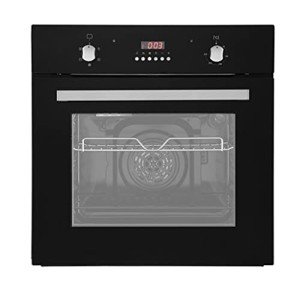The Integrated Cooker: A Comprehensive Guide to Modern Cooking Solutions
The evolution of kitchen appliances has actually changed food preparation and cooking methods, making meal preparation more efficient and pleasurable. Amongst these developments, the integrated cooker sticks out as a versatile and space-saving addition to modern kitchens. This post explores the numerous aspects of integrated cookers, including types, benefits, functions, and a contrast with traditional cooking techniques.
What is an Integrated Cooker?
An integrated cooker is a compact cooking appliance that integrates several cooking functions into one unit. Often built into kitchen cabinetry, these cookers are developed to save space while improving kitchen looks. They normally include a range of functionalities, such as baking, grilling, steaming, and even pressure cooking.
Key Features of Integrated Cookers
- Multi-Functionality: Integrated cookers can carry out numerous cooking jobs, removing the requirement for several appliances.
- Space-Saving Design: These cookers fit effortlessly into kitchen units, making them ideal for contemporary homes with limited space.
- Advanced Technology: Many integrated cookers come geared up with wise innovation, such as programmable settings, touch-screen controls, and connectivity choices.
- Energy Efficiency: Built with contemporary materials and design, they often take in less energy compared to conventional cooking approaches.
Types of Integrated Cookers
The market offers numerous kinds of integrated cookers, each with its unique set of features and functionalities. Here are the most common types:
| Type | Description | Example Use |
|---|---|---|
| Built-in Ovens | Ovens that are suited wall systems or cabinets | Baking bread, roasting meats |
| Induction Hobs | Cooktops that utilize electro-magnetic energy to heat pots and pans | Quickly boiling water, sautéing |
| Steam Ovens | Appliances that cook food using steam for healthier results | Steaming veggies, fish |
| Microwave Ovens | Integrated microwaves for fast heating and cooking | Reheating leftovers, making popcorn |
| Mix Ovens | A mix of conventional and steam cooking technologies | Baking while guaranteeing wetness retention |
Advantages of Using Integrated Cookers
Integrated cookers provide a host of advantages over conventional cooking tools. Below are some of the key benefits:
- Space Efficiency: Ideal for compact kitchens, integrated cookers use vertical areas efficiently.
- Structured Cooking Process: With multiple functions readily available, users can transition from one cooking technique to another with very little effort.
- Improved Aesthetics: Many integrated cookers can be found in smooth styles that blend well with modern-day kitchen design.
- Enhanced Cooking Control: Programmable functions enable for accurate cooking, ensuring much better meal results.
Integrated Cookers vs. Traditional Cooking Appliances
When considering meal preparation alternatives, it is important to weigh the benefits of integrated cookers against standard cooking appliances. Below is a contrast chart:
| Feature | Integrated Cooker | Traditional Appliances |
|---|---|---|
| Area Efficiency | High | Lower |
| Multi-Functionality | Yes | No (requires several appliances) |
| Energy Consumption | Typically lower | Can be greater |
| Cooking Speed | Faster (particularly with induction) | Varies |
| Design | Modern and smooth | Differs commonly |
The integrated cooker is a forward-thinking appliance that meets the needs these days's fast-paced lifestyle. Its multiplicity of functions, space-saving design, and sleek aesthetics make it a worthwhile investment for any modern kitchen.
For those aiming to conserve time, area, and effort in meal preparation, integrated cookers use an excellent service that boosts the cooking experience while providing yummy, well-prepared meals.
Frequently Asked Questions (FAQs)
1. What is the typical price of an integrated cooker?
The cost of integrated cookers can vary commonly, typically ranging from ₤ 500 to ₤ 3,000 depending on features, brand, and size.
2. How much maintenance do integrated cookers need?
Upkeep frequently consists of regular cleaning of surfaces and examining for any software application updates if they feature smart technology. It's a good idea to follow the producer's standards.
3. Can I replace my existing oven with an integrated cooker?
Yes, integrated cookers can frequently change traditional ovens, but it is important to seek advice from a professional to make sure compatibility with your kitchen design.
4. Are integrated cookers challenging to install?
Installation can be straightforward for those with DIY experience. Nevertheless, employing a certified specialist is advised to guarantee appropriate setup.
5. Who benefits Electric built in oven and hob packages from using an integrated cooker?
Households, time-pressed people, and those residing in compact apartments especially benefit from the multi-functionality and space-saving design of integrated cookers.
In this age of benefit and effectiveness, integrated cookers are redefining how we approach food preparation. Whether you are a skilled chef or a cooking novice, integrating this powerful appliance into your kitchen can considerably enhance your cooking experience.

